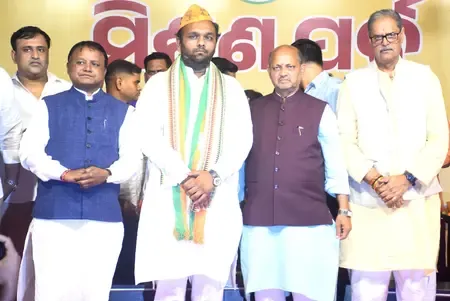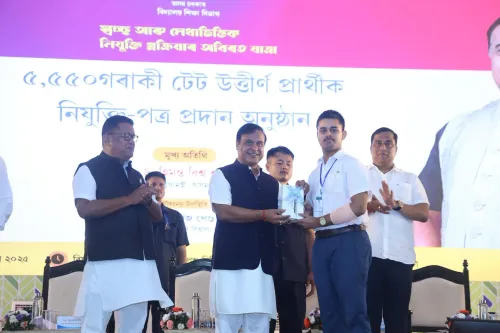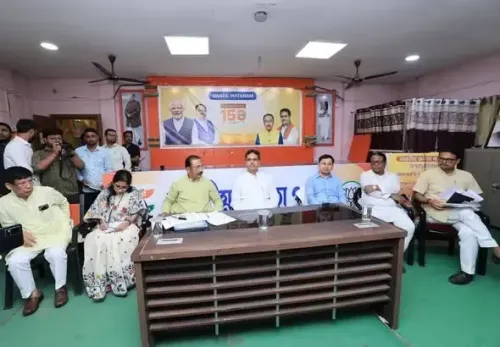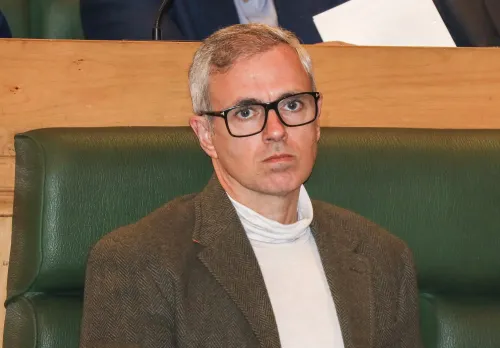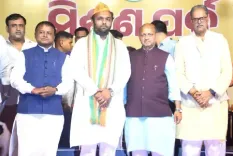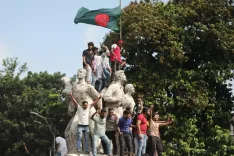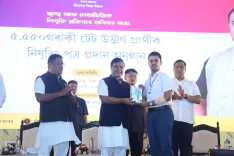Has MHA Rejected the Demand for Union Territories for Kuki-Zo Tribals in Manipur?
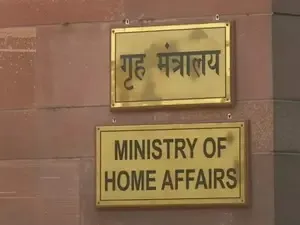
Synopsis
Key Takeaways
- MHA has rejected Union Territory demand
- Ethnic tensions persist in Manipur
- Need for constitutional protections
- Significant casualties from recent violence
- Future governance discussions are critical
Imphal, Nov 8 (NationPress) The Ministry of Home Affairs (MHA) has effectively dismissed the requests from Kuki-Zo tribal organizations and militant factions for the establishment of Union Territories with Legislative Authority for the Kuki-Zo community in Manipur, as stated by tribal representatives on Saturday.
The MHA engaged in discussions with representatives from Kuki-Zo armed factions, namely the Kuki National Organisation (KNO) and the United People’s Front (UPF), during a two-day conference held on November 6-7 in New Delhi. The talks primarily focused on the major demand for a Union Territory with a Legislative Assembly.
In a joint declaration, the KNO and UPF indicated that during the discussions, A.K. Mishra, Adviser for the North-East at the MHA, emphasized that while the Indian Government acknowledges the challenges faced by the Kuki-Zo populace, the existing policy framework does not endorse the formation of new Union Territories. He also highlighted the necessity for engagement with other groups in Manipur.
The KNO/UPF delegation implored the Centre to reassess its stance, arguing that the Constitution should take precedence over governmental policy.
They also noted that the current situation on the ground has rendered peaceful coexistence between the Meitei and Kuki-Zo communities unfeasible, necessitating the invocation of constitutional provisions to safeguard the lives and property of the Kuki-Zo.
As per the joint statement, the discussions during the two-day meeting also touched upon various topics relevant to tribal welfare, including the execution of the tripartite agreement reached on September 4 (2025) between the MHA, the Manipur government, and the SoO group.
The SoO group articulated the need to address governance and administrative issues in districts predominantly inhabited by Kuki-Zo individuals under the current conditions.
According to the September 4 agreement, the movement of both vehicles and people along the Imphal-Dimapur National Highway (NH-2), a critical route for Manipur, is set to resume. The KNO and UPF have also consented to relocate seven designated camps away from conflict-prone areas, minimize the number of camps, transfer weapons to the nearest CRPF and BSF camps, and ensure thorough verification of individuals by security forces to eliminate foreign nationals, if present.
A Joint Monitoring Group will oversee the enforcement of established regulations, with strict actions to be taken against any violations, including a review of the SoO Agreement, as stated in an official release following the September 4 meeting.
The UPF and KNO, which represent a coalition of 23 underground groups, formalized the SoO agreement with the government on August 22, 2008. Approximately 2,266 militants from these outfits are currently situated in various designated camps across the hilly regions of Manipur.
Since the outbreak of ethnic clashes on May 3, 2023, between the Meitei and Kuki-Zo communities, which was sparked by a ‘Tribal Solidarity March’ protesting the Meitei community's quest for Scheduled Tribe status, over 260 fatalities have been reported, alongside 1,500 injuries and the displacement of over 70,000 individuals.
Manipur has been under President’s Rule since February 13, just four days after N. Biren Singh resigned as Chief Minister on February 9. The state's 60-member assembly is currently in suspended animation, with a term lasting until 2027.

